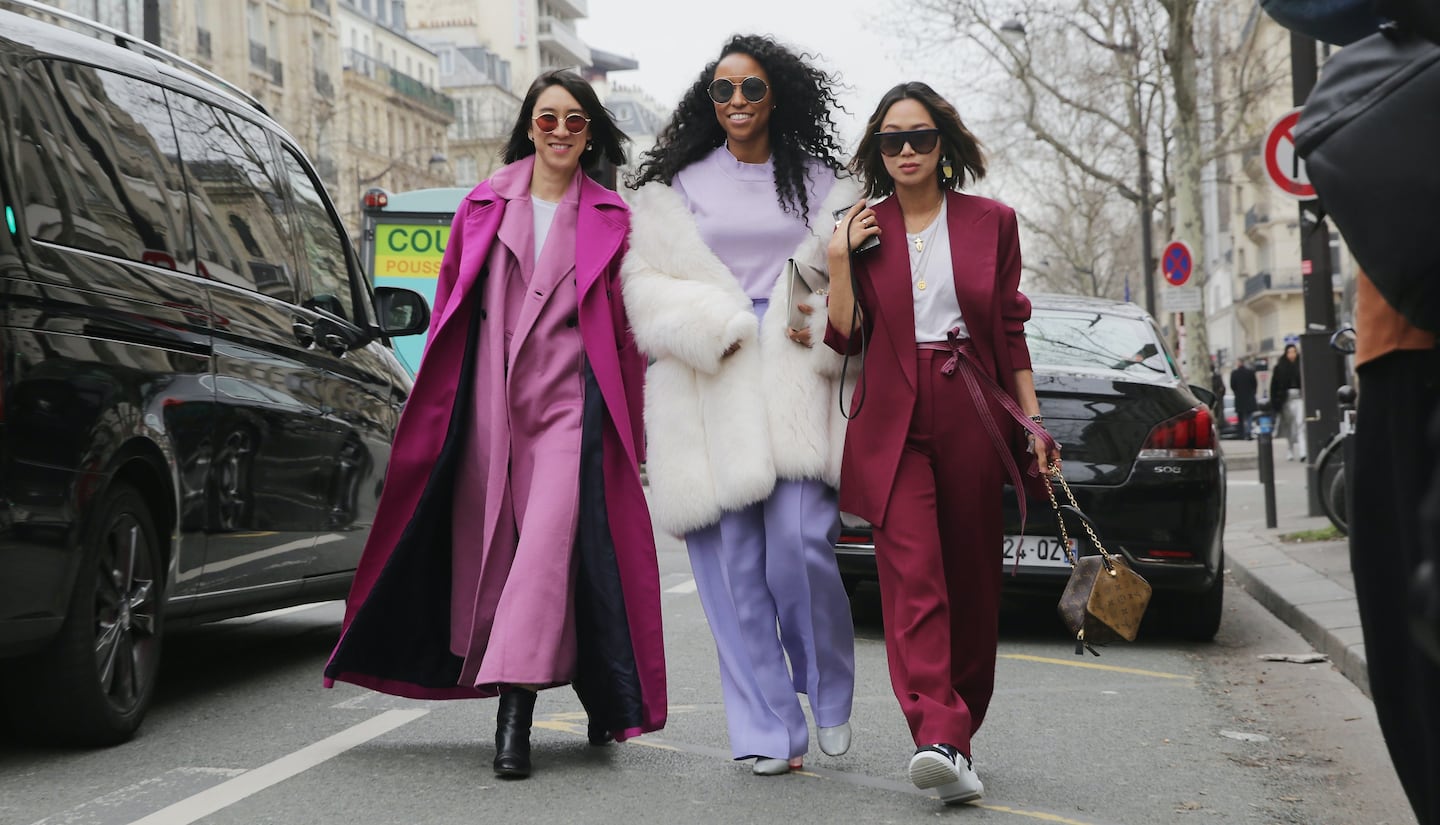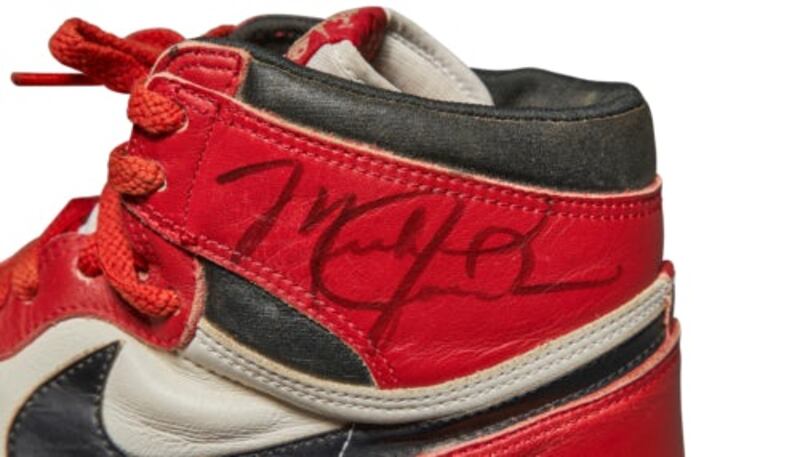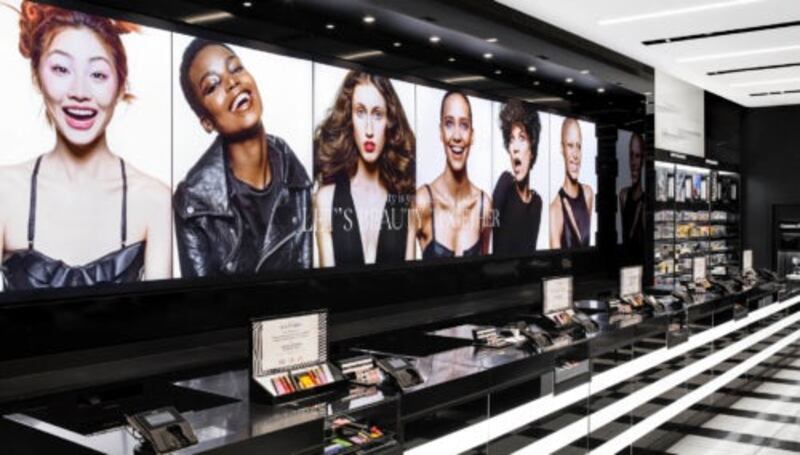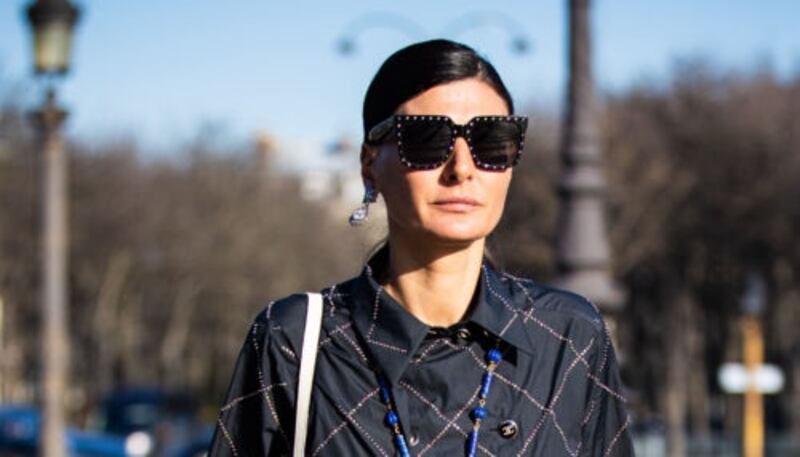
The Business of Fashion
Agenda-setting intelligence, analysis and advice for the global fashion community.

Agenda-setting intelligence, analysis and advice for the global fashion community.

Hello BoF Professionals, your exclusive 'This Week in Fashion' briefing is ready, with members-only analysis on the key topic of the week and a digest of the week's top news.
On Wednesday, Instagram's Vice President of Fashion Partnerships Eva Chen released a 13-page "playbook" on how to stage a virtual fashion show on the platform, covering practical pointers on topics from sending invitations to harnessing influencers to recreating backstage interviews.
Social distancing measures and travel bans aimed at slowing the spread of the Covid-19 pandemic have forced the cancellation of traditional fashion shows for the foreseeable future, presenting a land grab opportunity for popular digital platforms like Instagram.
YouTube is also a contender. Its own fashion liaison Derek Blasberg recently worked with Carine Roitfeld to reimagine her annual AmfAR charity show as a virtual event. Then, there’s the fast-growing video-sharing app TikTok, which is hot with teenagers and tweens.
ADVERTISEMENT
But Instagram is best positioned to seize the opportunity. The platform has long been a favourite of industry insiders and fashion fans alike. And for many brands, whose runway shows now double as consumer marketing spectacles, Instagram engagement is already a critical success metric and shows are often conceived with elaborate sets and performance elements that function as Insta-bait for influencers.
Now, lockdowns have pushed millions of consumers to embrace live video as a next-best alternative to real-life interaction, driving a 70-percent spike in usage of Instagram's "Live" functionality in April. The platform is said to be testing a new 'Simulcast to Facebook' feature that would allow users to reach even larger audiences. And, this week, Mark Zuckerberg, founder and chief executive of Facebook, Instagram's parent company, announced new shopping features, meaning shows staged on the platform could have a better chance of driving sales.
It's not hard to imagine Instagram disrupting digital fashion weeks.
Instagram is certainly a compelling option for brands mulling how and where to stage virtual fashion shows this season. And yet, fashion councils in London, Paris and Milan, which organise some of the world’s most important fashion weeks, are building their own destinations to host digital fashion weeks in June and July, targeting consumers as well as industry professionals, and putting themselves in competition with the likes of Instagram.
How will they drive significant traffic to these destinations? Will influencers and journalists find them compelling enough to amplify? And if you were a brand, wouldn’t you rather use a platform with a proven user experience where large numbers of people already gather?
It’s not hard to imagine Instagram disrupting these platforms, along with the very notion of holding digital fashion weeks in the first place.
Traditional fashion weeks exist because the physical world is frictionful. When people must travel to another country to attend a fashion show, it’s logical to bundle brands together and hold shows at a particular place and time to minimise friction and maximise engagement.
But the internet is different. Just as e-commerce has unbundled department stores, eliminating the need to buy everything under one roof when a universe of specialist retailers is only one click away, platforms like Instagram reduce the need for digital fashion weeks that aggregate brands together at one time and place, allowing innovation to flourish by making it easier for designers to show their collections whenever, wherever and however they want.
Of course, the pandemic won’t cancel physical fashion shows forever. Fashion weeks have an important role to play in bringing the industry together. And digital events are likely to prove poor substitutes for the magic of traditional shows, which powerfully harness the physical presence of the "right" people — celebrities, influencers and other tastemakers — to get fashion’s dream machine whirring, turning dresses into objects of desire.
ADVERTISEMENT
Importantly, Instagram does not see the app as a substitute for physical fashion shows. “In no way do we see Instagram as a replacement for the traditional show, but we want to do what we can to provide a solution during these times, and we hope this is a good place to start,” reads its playbook.
But when physical events do return and fashion weeks with them, brands are unlikely to revert back to a one-size-fits-all approach to showing. It’s easy to imagine a designer like Virgil Abloh staging a fashion analogue to Travis Scott’s virtual concert in the battle royale video game Fortnite, which attracted 12.3 million concurrent players, for his next Louis Vuitton men’s show. Why would he return to a traditional catwalk template when the pandemic passes?
It’s doubtful that Instagram will ever own or disrupt fashion week in its entirety. But a season or two of brands showing on its platform and exploring new possibilities for how and when to present their collections could certainly rewire the way fashion week works.
THE NEWS IN BRIEF
FASHION, BUSINESS AND THE ECONOMY

The Nike Air Jordan 1s made for Michael Jordan in 1985 | Source: Sotheby's
Nike Air Jordans 1s sold for $560,000. The Sotheby's auction coincided with the 35th anniversary of Nike's Jordan brand and the screening of the 10-part ESPN documentary The Last Dance. The Air Jordan 1s, which were designed for Jordan by Nike in 1985, were expected to fetch between $100,000 to $150,000 but instead broke the world record for sneakers: $437,500 paid for a pair of 1972 Nike running shoes known as the Moon Shoe.
J.C. Penney files for bankruptcy protection. The US department store chain said it reached an agreement with existing lenders for $900 million of financing to aid operations while it navigates bankruptcy proceedings. J.C. Penney said it is exploring a sale as part of its new financing strategy, and will shut 29 percent of its stores to save money. The chain anticipates cancelling several billion dollars of debt as part of its bankruptcy proceedings.
ADVERTISEMENT
Macy's warns of up to $1 billion quarterly loss. The department store operator forecast first-quarter sales between $3 billion to $3.03 billion, down from $5.50 billion a year earlier. Macy's hired investment bank Lazard Ltd last month to help it strengthen its finances after shutting all of its 775 stores in March. Macy's started a phased reopening of approximately 190 stores last week.
The BFC and CFDA back industry change. A statement released by the British and American trade groups appeared to back many of the suggestions put forth by designers and executives to fix what they believe is a broken system. The BFC and CFDA urged that the industry's pace slows down by producing fewer collections that are available to buy in sync with the natural seasons.
Post-lockdown, few are venturing into US stores. In mid-May, foot traffic to shops was 92 percent below the same period a year ago, compared with a 95 percent falloff in the previous seven days. As lockdown restrictions loosen in many states, retailers including Nike, Coach parent Tapestry and Tommy Hilfiger and Calvin Klein owner PVH have said they will begin a phased, tightly-regulated reopening process.
Italian retailers reopen as lockdown eases. Shops, restaurants and hair salons reopened on Monday, after the government took a "calculated risk" to put the country back on its feet. But businesses will have to adhere to strict sanitary protocols that include keeping people at least a metre apart. Some retailers have said they will quarantine clothes tried on by customers for 24 hours while some beauty retailers will minimise human contact by eliminating testers.
THE BUSINESS OF BEAUTY

Inside a Sephora store | Source: Courtesy
Sephora reopening US stores. Starting this week, the multi-brand beauty giant is opening 70 stores across 13 states, without testers, with social distancing guidelines in place and with each store having an appointed "hygiene leader." Sephora's reopening process will also include updated employee training that addresses new deep cleaning rules and enhanced hygiene measures.
Bath & Body Works buoys parent L Brands. Despite a drop in total sales, digital purchases almost doubled from a year earlier to $289 million in the first quarter. Sales at the company, which have outperformed those at Victoria's Secret in recent quarters, confirm L Brands' decision to manage Bath & Body Works as a standalone public company. By comparison, same-store sales at Victoria's Secret fell 15 percent in the same time frame.
PEOPLE

Giovanna Battaglia Engelbert | Source: Getty Images
Giovanna Battaglia joins Swarovski as creative director. Swarovski has appointed Giovanna Battaglia Engelbert as its first ever global creative director. She will lead Swarovski's product design and overall creative vision, and will showcase her first collection in the role in Spring/Summer 2021. Battaglia Engelbert, who has been with the company since 2016, previously oversaw creative direction of Swarovski's B2B division.
Tom Van Dorpe is The Kooples new artistic director. Stylist and creative consultant Tom Van Dorpe has been named artistic director of The Kooples, following several additions to the brand's executive team since it was acquired by MF Brands Group in March 2019. Dorpe's primary task will be to restore the brand's grungy elegance in a way that feels relevant today.
Sebastien Picardo named president and CEO of Holt Renfrew. Canadian luxury department store Holt Renfrew has appointed Sebastien Picardo president and chief executive, effective June 1. Picardo, who was previously deputy president of Lane Crawford, replaces Mario Grauso, who is "planning to return to the United States... and will support the transition," according to a company statement.
MEDIA AND TECHNOLOGY
Rent the Runway reportedly nears funding below last $1 billion value. The fashion rental platform is said to be seeking at least $25 million in a down round, which would value the start-up at about $750 million. The company was valued at $1 billion last year, after a $125 million funding round financed in part by investment management firm T. Rowe Price.
Facebook reboots its shopping features. As the pandemic pushes more consumers to turn to both social media and e-commerce, Facebook Chief Executive Mark Zuckerberg is hoping new shopping features, allowing retailers to upload product offerings onto their Facebook and Instagram profiles, will help the company build a shopping empire.
BoF Professional is your competitive advantage in a fast-changing fashion industry. Missed some BoF Professional exclusive features? Click here to browse the archive.
From where aspirational customers are spending to Kering’s challenges and Richemont’s fashion revival, BoF’s editor-in-chief shares key takeaways from conversations with industry insiders in London, Milan and Paris.
BoF editor-at-large Tim Blanks and Imran Amed, BoF founder and editor-in-chief, look back at the key moments of fashion month, from Seán McGirr’s debut at Alexander McQueen to Chemena Kamali’s first collection for Chloé.
Anthony Vaccarello staged a surprise show to launch a collection of gorgeously languid men’s tailoring, writes Tim Blanks.
BoF’s editors pick the best shows of the Autumn/Winter 2024 season.